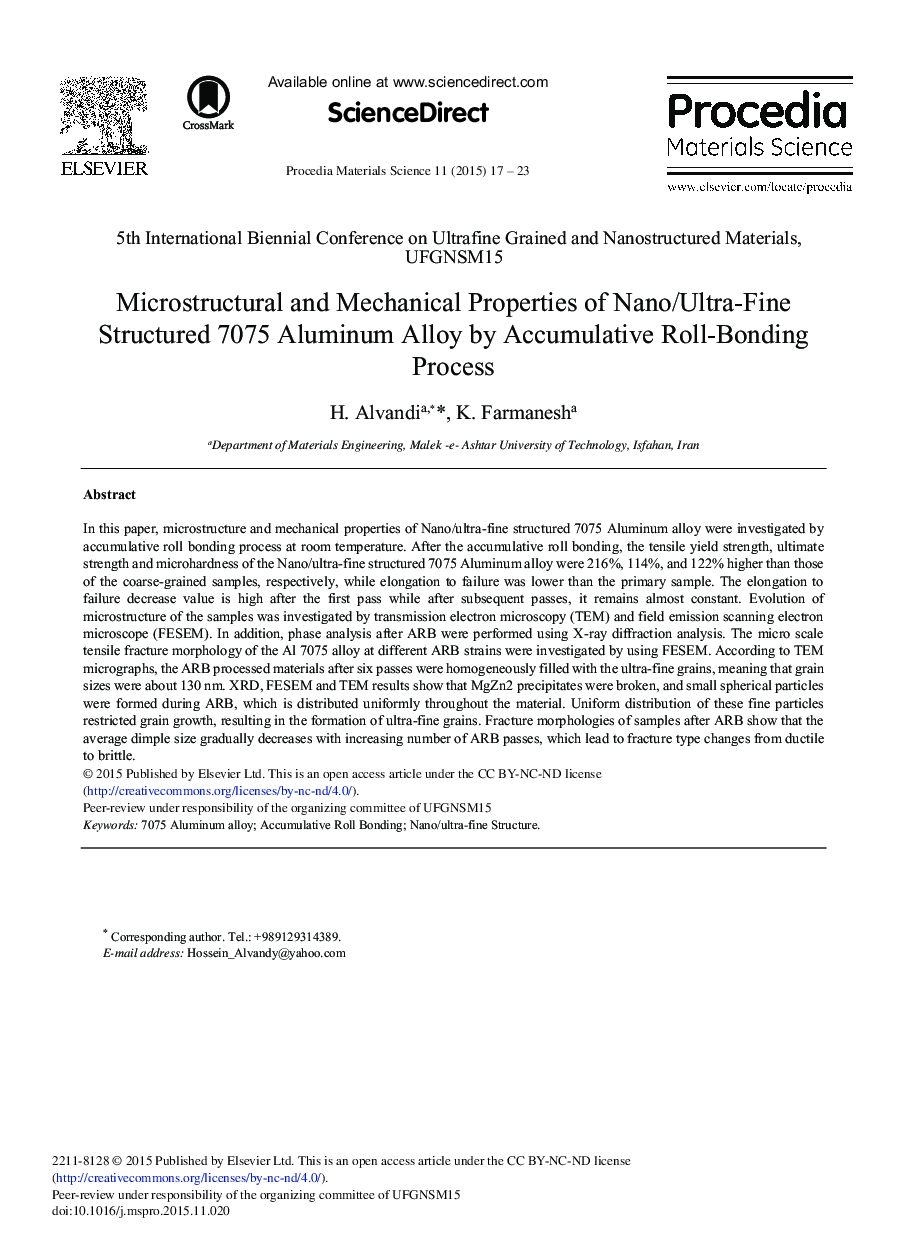| Article ID | Journal | Published Year | Pages | File Type |
|---|---|---|---|---|
| 1634015 | Procedia Materials Science | 2015 | 7 Pages |
In this paper, microstructure and mechanical properties of Nano/ultra-fine structured 7075 Aluminum alloy were investigated by accumulative roll bonding process at room temperature. After the accumulative roll bonding, the tensile yield strength, ultimate strength and microhardness of the Nano/ultra-fine structured 7075 Aluminum alloy were 216%, 114%, and 122% higher than those of the coarse-grained samples, respectively, while elongation to failure was lower than the primary sample. The elongation to failure decrease value is high after the first pass while after subsequent passes, it remains almost constant. Evolution of microstructure of the samples was investigated by transmission electron microscopy (TEM) and field emission scanning electron microscope (FESEM). In addition, phase analysis after ARB were performed using X-ray diffraction analysis. The micro scale tensile fracture morphology of the Al 7075 alloy at different ARB strains were investigated by using FESEM. According to TEM micrographs, the ARB processed materials after six passes were homogeneously filled with the ultra-fine grains, meaning that grain sizes were about 130 nm. XRD, FESEM and TEM results show that MgZn2 precipitates were broken, and small spherical particles were formed during ARB, which is distributed uniformly throughout the material. Uniform distribution of these fine particles restricted grain growth, resulting in the formation of ultra-fine grains. Fracture morphologies of samples after ARB show that the average dimple size gradually decreases with increasing number of ARB passes, which lead to fracture type changes from ductile to brittle.
